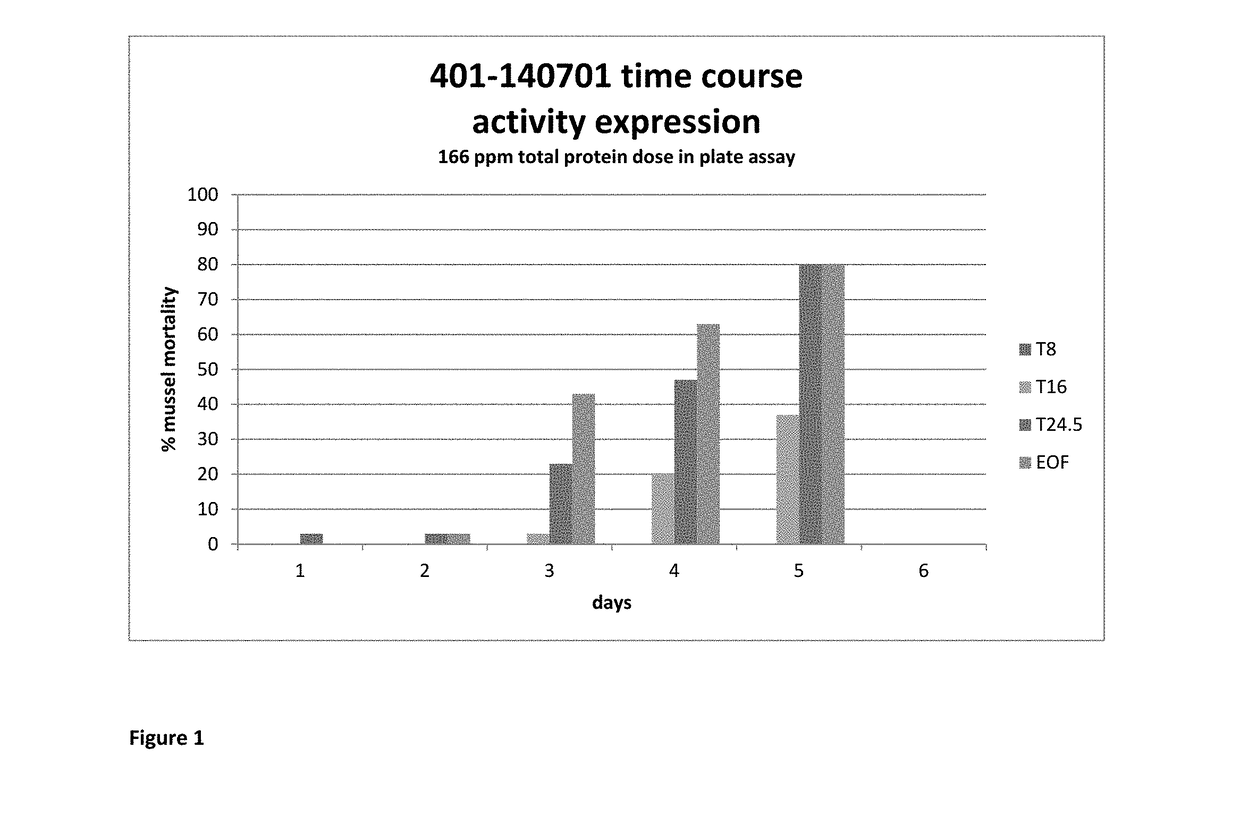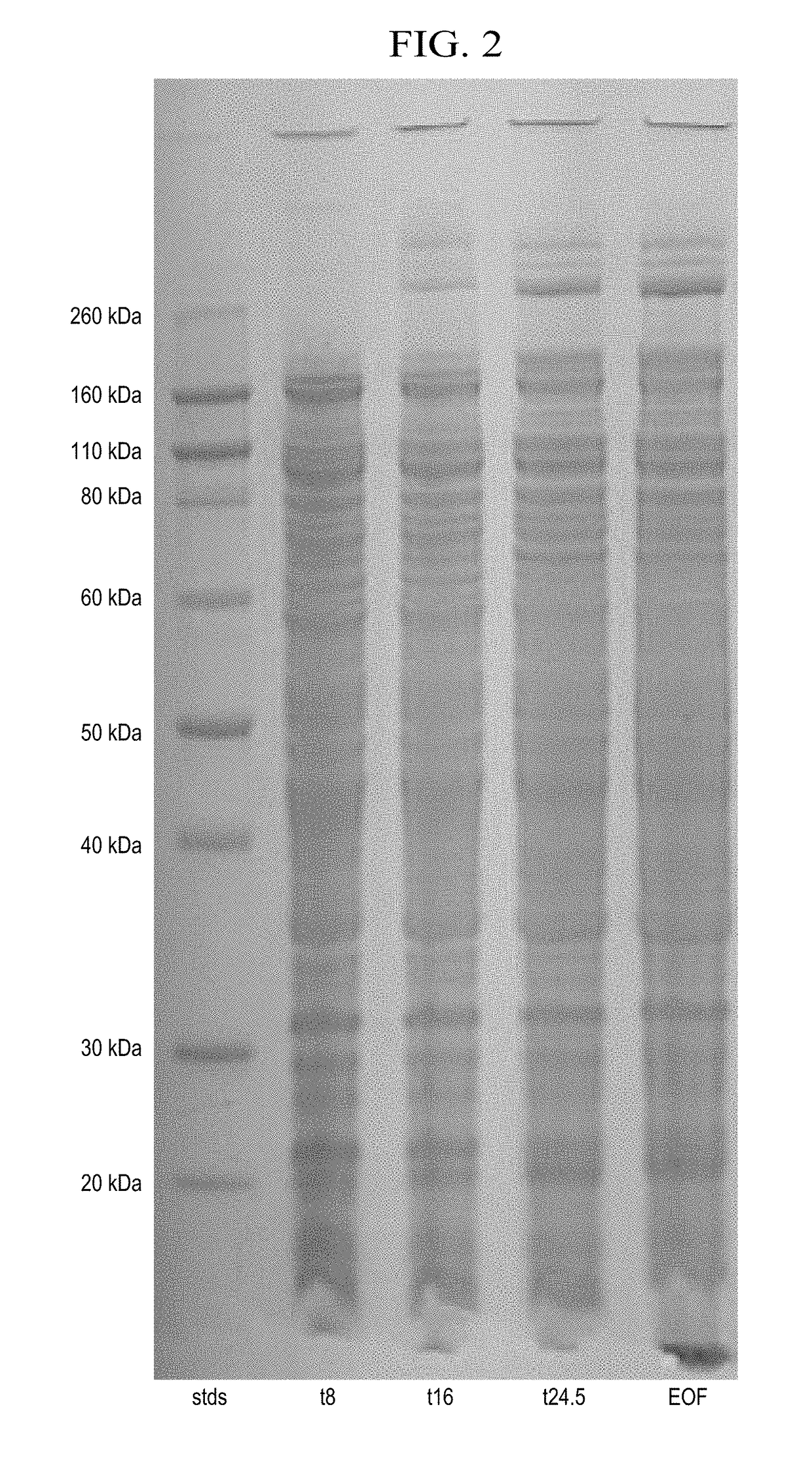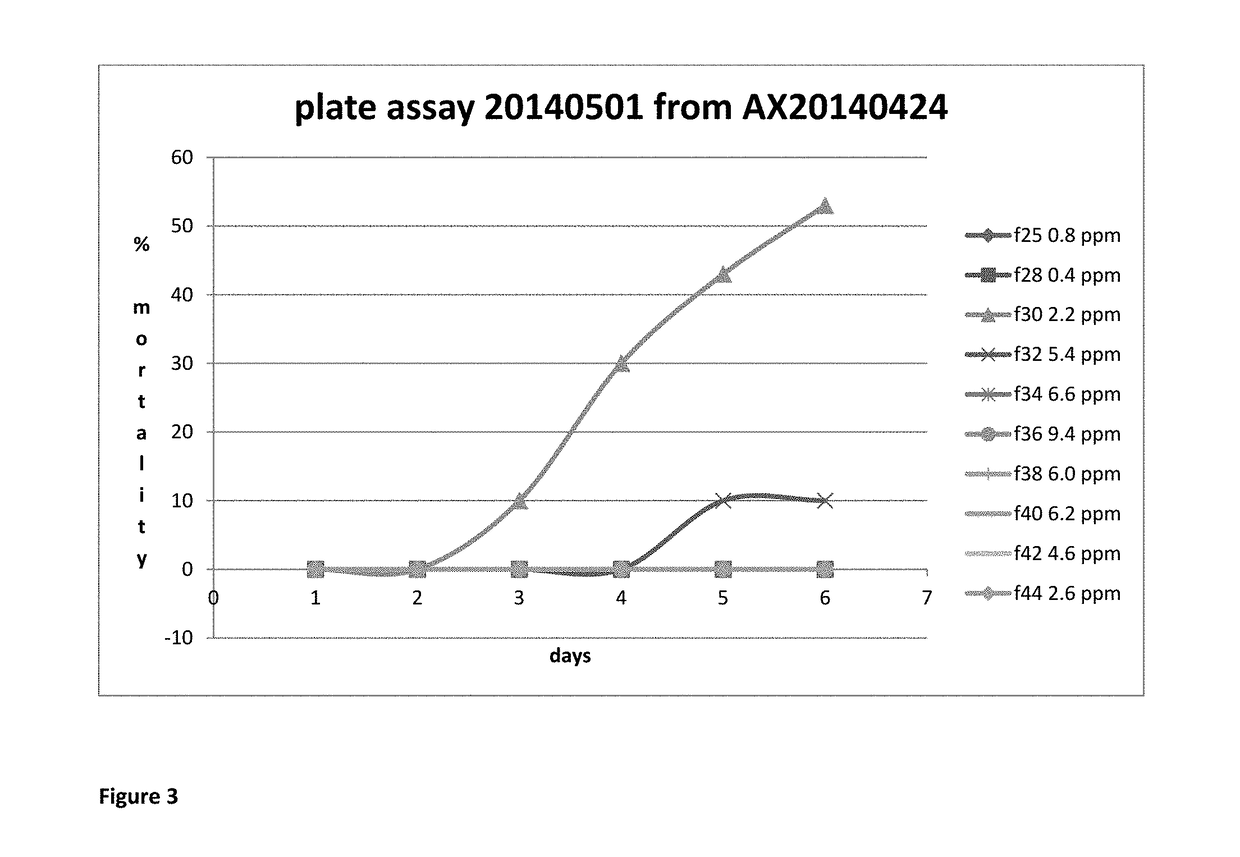Use of Proteins to Control Molluscs
a technology of proteins and molluscs, applied in the direction of biocide, sustainable biological treatment, biological water/sewage treatment, etc., can solve the problems of water-dependent infrastructure damage, millions of dollars in operating expenses, and serious adverse effects
- Summary
- Abstract
- Description
- Claims
- Application Information
AI Technical Summary
Benefits of technology
Problems solved by technology
Method used
Image
Examples
examples
[0074]Sample aliquots of whole cell broth were removed from a 100 L fermentation of Pseudomonas protegens CL145A at 8, 16, 24.5 and 33 hours (EOF, end of fermentation). The supernatant free whole cell paste was lysed by sonication, and the lysates were examined for activity by live mussel bioassay and analyzed by SDS-PAGE. FIG. 1 is a plot of the mussel mortality of the cell lysates vs. the days of the mussel assay.
[0075]Mussel activity of the cell lysates is very low over the first 16 hours of the fermentation and reaches the highest level at the end of the fermentation. SDS-PAGE (FIG. 2) clearly reveals at least three HMW proteins >260 kDa where expression correlates to the mussel mortality in FIG. 1.
[0076]The supernatant (SN) from P. protegens EOF cell lysate was fractionated via Q-sepharose anion exchange chromatography and the fractions were bioassayed for mussel killing activity. FIG. 3 is a plot of the fraction activity and FIG. 4 is the SDS-PAGE of the fractions.
[0077]The HM...
PUM
| Property | Measurement | Unit |
|---|---|---|
| temperature | aaaaa | aaaaa |
| inert | aaaaa | aaaaa |
| composition | aaaaa | aaaaa |
Abstract
Description
Claims
Application Information
 Login to View More
Login to View More - R&D
- Intellectual Property
- Life Sciences
- Materials
- Tech Scout
- Unparalleled Data Quality
- Higher Quality Content
- 60% Fewer Hallucinations
Browse by: Latest US Patents, China's latest patents, Technical Efficacy Thesaurus, Application Domain, Technology Topic, Popular Technical Reports.
© 2025 PatSnap. All rights reserved.Legal|Privacy policy|Modern Slavery Act Transparency Statement|Sitemap|About US| Contact US: help@patsnap.com



